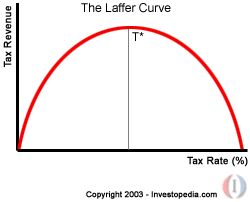I wrote this story over 20 years ago when I
worked for the Postal Service. Some of the incidents actually took place. Well,
possibly just one incident. But in the ensuing 20 years, one thing hasn’t
changed. Many Americans can’t get the idea out of their heads that poor people
are screwing us. My only question is this. If they’ve been screwing us for this
long, why aren’t they doing better?
It’s that time of the year when offices start collecting for
Christmas care packages for the needy. At my workplace, in addition to asking
for non-perishable canned goods, we were also asked if we knew of any needy
families on our route that might benefit from our generosity. The request came
with one caveat.
“Make sure the families are truly needy,” we were cautioned. One year we
brought food to a home and the family was away on vacation to Idaho.”
This seemed rather strange to me. I never took vacationing in Idaho to be
a measure of one’s financial well-being or not-so-well-being, and yet the
implication clearly was that the truly poor would not be vacationing there.
I don’t know. Having vacationed in Washington D.C., Boston and other
tourist hotspots, I’d look at Idaho as a pretty cheap getaway, all things
considered. I have never heard anyone say, “We’d like to go to Idaho this year,
but I don’t think we can afford it.”
I generally set an income level of 15 to 20 thousand a year for a family
of four as being in the struggling range and below that to be poverty. But
maybe I’m naïve to be considering poverty based solely on economic
indicators.
Maybe there is something to be said for the Idaho/poverty connection. I
checked out some books from the library and sure enough Idaho has one of the
lowest number of people living off Uncle Sam.
So if you can’t live there and be in poverty, it stands to reason you
shouldn’t be able to visit there either and be in poverty. You can’t have it
both ways. Therefore it makes sense that you wouldn’t want to be giving someone
visiting Idaho a Christmas care package. Or anything else for that matter.
I’m very careful about this now that I know. Like they say, a little bit
of knowledge goes a long way—maybe not as far as Idaho but still a long way.
I was walking into a neighborhood K-mart the other day and there was a
Salvation Army soldier manning the post. I walked over to him and casually
struck up a conversation.
“I was just wondering,” I said, “but you don’t happen to know if this
money or any of the stuff you buy with this money goes to people who vacation in
Idaho, do you?”
He looked real smug, like he knew where I was coming from but at the same
time didn’t want to be bothered—like he had seen me coming or something. He
stepped back and pointed to a sign taped to his pot. It read: WE DON’T GIVE NO
MONEY, NO HOW TO PEOPLE WHO VACATION IN IDAHO.
“Satisfied?” he asked.
“Very much so,” I replied, “and impressed I might add.”
“Well, let’s put some of the green stuff into the pot then.”
“Wait a minute,” I said. “Not so quick. Being satisfied and being willing
to part with my hard earned cash are two different things. You know, I watch a
lot of 60-minutes, so I’m not exactly walking around in a vacuum. I know there
is a lot of fraud going around, especially amongst the poor. You read the
papers, don’t you?”
“What are you getting at?” he asked, a little impatiently.
“How do you know,” I said rather deliberately so as to make my point
perfectly clear, “that some woman doesn’t tell you that her family never visits
Idaho and then after you’ve given her a turkey and a week’s supply of canned
peas they don’t pack up and hit the road. How-do-you-know, eh,
how-do-you-know?”
“I don’t know, I’ll ask her.”
“You don’t think she’d lie to you if she wanted the turkey bad enough?
Maybe you should have her sign an affidavit.”
“Stating what?”
“That they aren’t going to Idaho.”
“Never, ever? For how long?”
“For as long as they want to be treated as poor people.”
“And maybe, I could drop you right where you stand,” he said, sounding
not so much like a Salvation Army soldier but more like a real soldier.
I wasn’t taking any chances. I dropped a buck in the pot and took off.
Still, something has to be done about this Idaho problem. I’m just not exactly
sure what but something has to be done.
I’ll tell you what I would like to do, though. I’d like to take a trip to
Idaho over the holidays. Then I could send postcards to all my friends.
“Merry Christmas from Idaho,” I could write. “Wish you were here. Wish
you could afford to be here.”
I’d be the envy of all my friends. “Man, that Phil has it made,” they’d say. “He’s doing Christmas in Idaho. He must be rich.”




